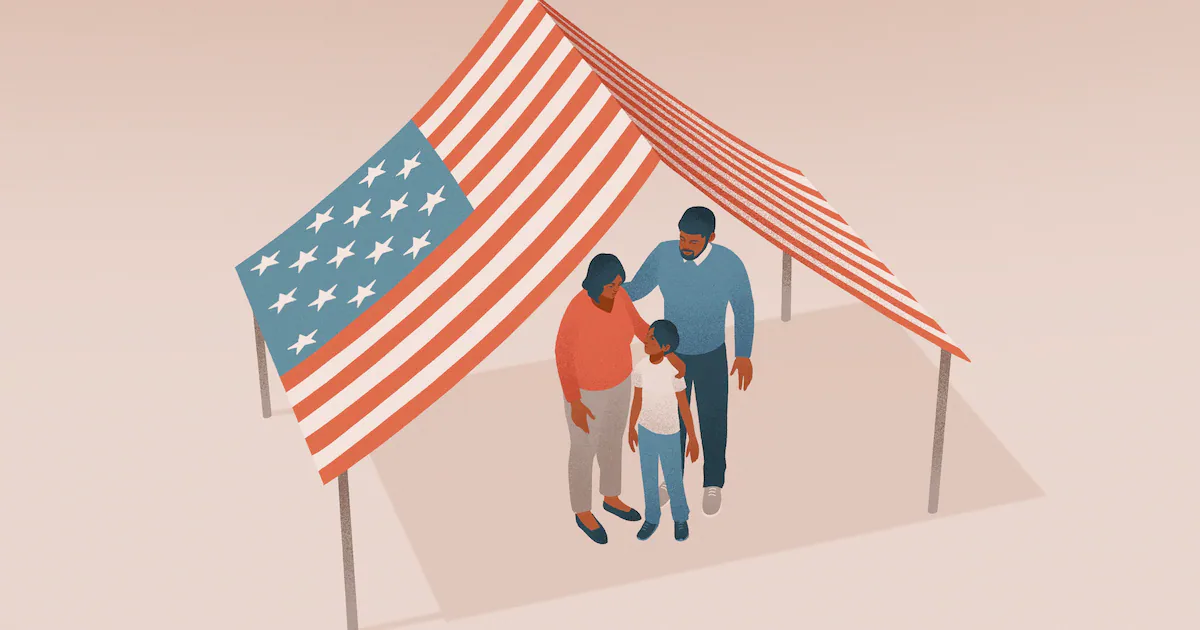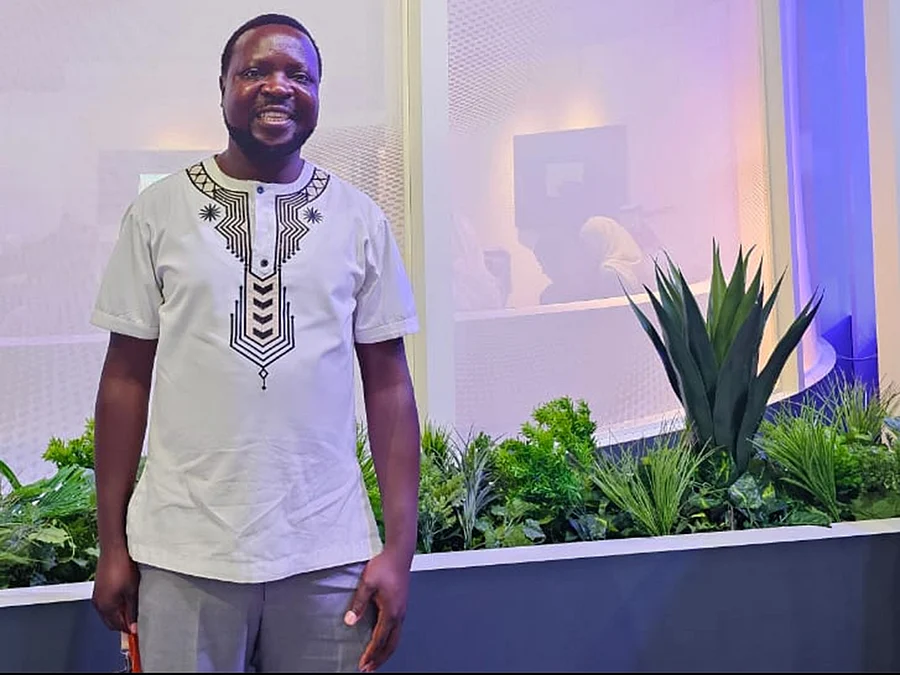
A few years ago, a neighbor hosted a Constitution Day gathering in her home with a prominent religious leader and invited local friends. In our progressive neighborhood, some treated it as the equivalent of hosting a MAGA rally.
As a law professor who studies the constitutional rights of defendants — and as someone deeply grateful to live in a country that protects those rights — I have often wondered: why do so many today seem to have an allergic reaction to celebrating the Constitution?
When I was a toddler, men with machine guns barged into our home and tore my mother away as I was sitting on her lap. Her crime was raising money for an organization that believed in free speech and freedom of religion — two rights the new Islamic government of Iran had outlawed.
She was taken to a small, bare room where her “trial” lasted only minutes. A few men read the charges against her. She had no lawyer, no chance to present evidence, no jury of her peers. Her only option was to plead guilty.
She was sentenced on the spot to 10 years in prison with no appeal possible. She was then transported to the infamous Evin Prison, a place notorious for crushing the human spirit. She had no bed — only a dirty floor crammed so tightly with other political prisoners that she could only sleep on her side. Hygiene was nonexistent and despair hung in the air.
The most horrific part came at night, when she and the other women would lie awake, knowing that guards would select a random number of inmates to be executed by firing squad as an intimidation tactic. Imagine trying to rest, not knowing if your name would be called before dawn.
This was not justice. It was the brutal face of unchecked power, where a government endured little due process or opposition.
My mother was miraculously released two years later. But that experience seared into me the difference between a system ruled by humans and a system ruled by law. And that is why Constitution Day is not just symbolic for me; it is a celebration of the very principles that guard against the nightmare my mother and I once lived through.
A genius structure enumerating precious rights
In America, the Constitution was designed precisely to prevent such abuses. The founders, aware of the abuses of human ambition and corruption, built a system where power was never meant to rest unchecked in one person, one faction, or one council. By design, power is separated into three branches — legislative, executive, and judicial — each with the ability to check the other. No president can govern without some degree of consensus, no legislation should step beyond constitutional constraint and be enforced by a court, and no judge should rule outside the bounds of the law.
The Constitution does more than create structure, though; it enshrines rights that shield individuals from government abuse. Rights that my mother would have dearly benefited from when I was young. The Bill of Rights guarantees that the government cannot silence speech, dictate religion, or invade the privacy of one’s home.
The Fourth Amendment has been interpreted to require that officers “knock and announce” their entry for an arrest, except in exigent circumstances. Other amendments ensure the accused have the right to counsel and a jury of their peers, that punishments are not cruel or arbitrary, and that the accused maintain the right to appeal in the courts. Contrast this with my mother’s “trial” in Iran: no lawyer, no witnesses, no jury, no hope for protections.
Why people still come
Today, countless immigrants — especially those who are undocumented — live in fear in America. My own parents knew that fear. After joining The Church of Jesus Christ of Latter-day Saints, they became undocumented for a time while we applied for asylum, terrified of returning to Iran and facing political and religious persecution.
They were blessed to obtain legal status quickly, but it came at great cost: they surrendered all their land and possessions in Iran to pursue opportunity and freedom in America with nothing but hope.
Once my parents became U.S. Citizens in 1999, my parents sponsored many of their family members who left behind homes and successful careers in Iran in pursuit of U.S. constitutional protections. My relatives who immigrated are grateful for the reliability of living under the rule of law: in America, an architect or engineer’s work ends in payment every time — back home, half the clients might never pay.
Here, property rights are also real; what you build and own is protected, not potentially seized by the government on a whim. And the American dream is still alive as education and entrepreneurship can move families forward in ways that are often impossible elsewhere. This is why, even with its imperfections, people across the world still yearn to come to America.
Many of my family members longed to immigrate since their twenties but only received the opportunity in their forties — and they seized it without hesitation. They immigrated and, by initially driving Uber at night and working at Walmart by day, built a stable and prosperous life in America.
They are deeply grateful for freedoms many take for granted: to worship God — or not — without fear of prison or persecution. My immigrant friends echo the same gratitude: their children can attend some of the best universities in the world, their contracts are honored and paid, their children are not slapped or hurt at school for disciplinary reasons and attend for free, and they no longer feel pressure to slip bribes just to conduct ordinary business.
In recent years, there have been setbacks on the immigration front which has personally affected my family. My cousin who is a professor of medicine in Iran received a coveted lottery spot to enter the United States that was canceled by the first Trump Administration. She has been working diligently since then, continuing to apply to enter the United States.
The privilege of coming to America should be pursued legally, so that all who seek the opportunities and protections of this nation have a fair chance — rather than some being advantaged simply by proximity or the ability to cross a border unlawfully.
At the same time, as a Christian, I believe compassion should guide how we consider those who, though they entered unlawfully, have since honored the law and established families and built businesses here.
Our nation has long been a refuge for people seeking economic and educational opportunity, religious liberty and freedoms still denied in many parts of the world. Holding fast to the law while extending generosity of spirit honors both our constitutional principles and our civic conscience.
Beyond partisanship
Today, the Constitution is too often reduced to a partisan symbol, as though reverence for it belongs to one political party alone. That is a dangerous mistake.
The Constitution is not the possession of a faction, but the foundation of our freedom — the framework that built the America we know and love, and a model so remarkable that Former Utah Supreme Court Justice and First Presidency member in The Church of Jesus Christ of Latter-day Saints, Dallin H. Oaks has recognized it as “common heritage” in constitutions across the world.
To brand the Constitution as partisan cheapens its genius, weakens the unity it was designed to create, and undermines the very rights that aim to safeguard all of us.
The reality is that the Constitution protects speech and religious practice across the political spectrum. From civil rights activists to Christian pastors, from pride parades to prayer revivals — the Constitution safeguards liberty for everyone.
Courts have upheld the First Amendment rights of civil rights activists in the 1960s, labor organizers, political protestors, people of faith seeking exemptions, and even parents objecting on religious grounds to elementary school curriculum.
Most recently, prominent Christian pastors and a nationwide revival group filed suit in Los Angeles, arguing that officials imposed “lengthy and pretextual administrative hurdles” when they sought a permit to worship publicly and speak against abortion, pornography, and human trafficking — even though the same street had been opened to the LA Pride Parade and ICE protests. Whether or not the pastors prevail, the point is this: the Bill of Rights guarantees that a neutral judge — not political favoritism — decides their claim.
Far from belonging to one party or ideology, the Constitution aims to deliver an indispensable shield of liberty for Americans of every conviction. Whether you prefer to attend a Christian revival, a pride parade, or both, the Bill of Rights protects your place in the public square. Our love for it should unite us in defending respectful — even opposing — voices.
The Constitution as common ground
As a law student who fell in love with the Constitution at BYU, I spent a summer interning at the National ACLU headquarters. I loved working on projects to secure equal access for female prisoners to educational materials, but I declined to participate in an abortion matter because of my faith.
The fact that the ACLU welcomed a relatively conservative intern from BYU was a powerful reminder that serious constitutional work has room for principled disagreement. Many judges make a point to hire law clerks from across the political spectrum for the same reason.
In law schools across the country, the Constitution brings people together who disagree profoundly. Branches of the Federalist Society and the American Constitution Society at most law schools stand on opposite ends of the ideological spectrum, built on the conviction that the Constitution is essential to preserving democracy.
The Federalist Society, with more than 75,000 members, centers on conservative and libertarian legal principles, while the ACS, with roughly 40,000 members, focuses on progressive legal advocacy. They debate its meaning from different perspectives — originalism versus purposivism — but their very existence underscores that the Constitution is the common framework within which those debates can occur.
Why Constitution Day matters
The Constitution is foundational to what we all love about America. Arizona State professor Paul Carrese noted in a lecture at the Wheatley Institute last year that “our very complex constitutional system of separation of powers and federalism inherently call for civil disagreement over both long-term and day-to-day political issues.” So, understanding the rights underlying our constitutional system and how they protect people who disagree with us is critical.
According to a 2024 Annenberg Survey, while 74% of Americans could name freedom of speech as a bill of right, only 39% could recall the freedom of religion and only 29% could recall the freedom of the press.
There is too little civic education about the Constitution and the history that gave rise to its genius design. A recent New York Times Op-ed warned that “by abandoning civic education, colleges helped create the culture wars.” There is hope for improvement with 13 college campuses funding departments of civic education, including Utah Valley University, and Stanford, which now require 2/3 of all first-year students to take a course on citizenship in the 21st Century.
A Constitutional education does not require loyalty to a party, but to a framework that tempers power, protects rights, and secures liberty for all.
For someone who grew up in a system without those safeguards, the difference is a land people will risk losing everything to call home. And for every American it is a reason to celebrate a day set aside to honor it.
The Constitution does not benefit one party over another; nor is it the property of a faction — it is a covenant that protects us and those with whom we most deeply disagree. It remains our common inheritance, the shield of liberty that guards every American, no matter their conviction — promising that freedom and dignity are not granted by rulers but guaranteed by law and divinely appointed rights.
We honor the Constitution best by understanding and defending it — not only for ourselves, but for those like my cousin still waiting patiently in line to taste its promise.



